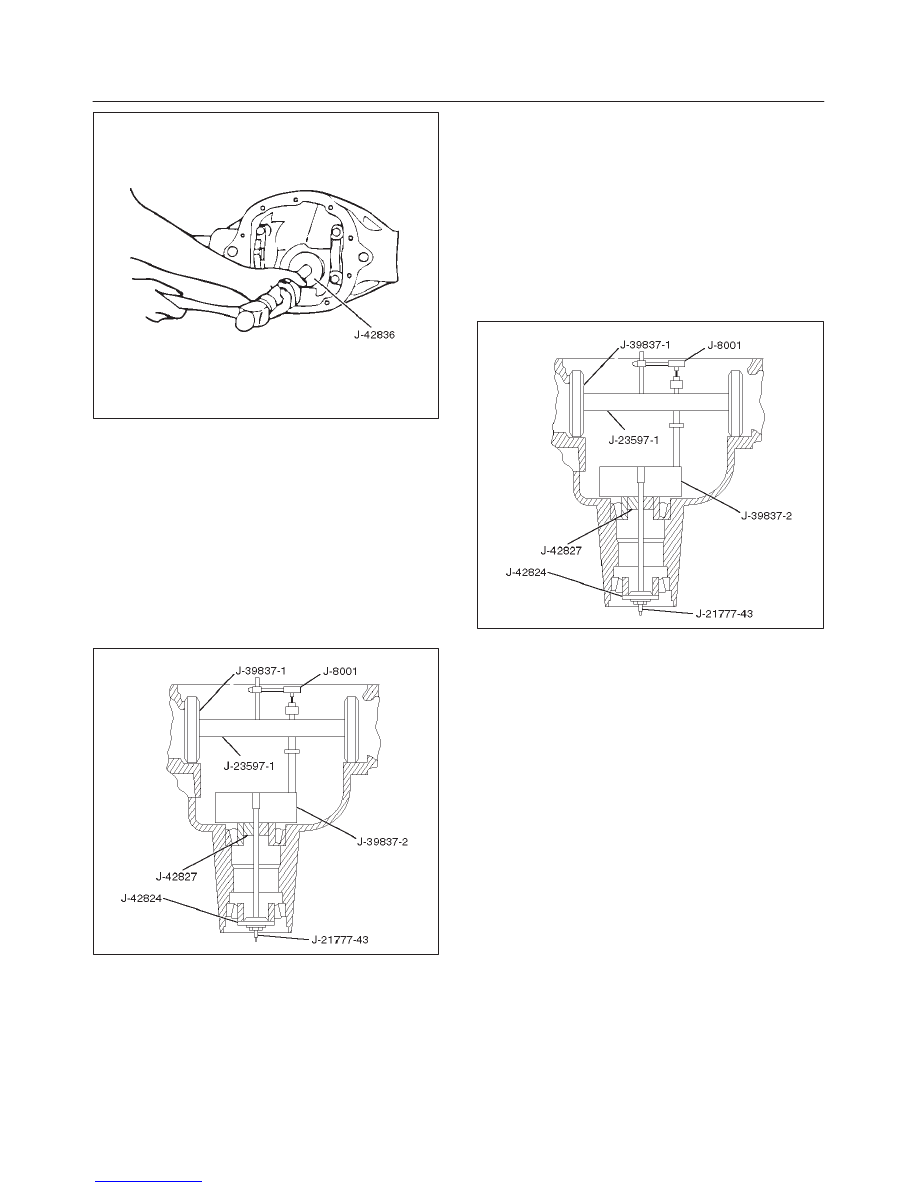Isuzu Rodeo UE. Manual - part 63

DIFFERENTIAL (REAR)
4A2–17
425RW020
2. Clean all the gauge parts.
3. Lubricate the outer and inner bearings with axle
lubricant.
4. Place the bearings into the pinion bearing races.
5. Place the inner oil slinger onto the inner pinion
bearing.
NOTE: The inner oil slinger must be placed between
gauge plate and inner pinion bearing when measuring the
pinion depth.
6. Install gauge plate J–39837–2, inner J–42827 stud
and nut J–21777–43 and outer pilot J–42824 to the
pinion bore.
420RW005
7. Hold the stud stationary at the flats of the stud (and).
Tighten the stud nut
Torque: 2.2 N·m (1.6 lb ft)
8. Rotate the gauge plate and bearings several
complete revolutions to seat the bearings.
9. Tighten the stud nut until a torque of 1.6 to 2.2 N·m
(1.2 to 1.6 lb ft.) is required to keep the gauge plate in
rotation.
10. Assemble discs J–39837–1, arbor J–23597–1 and
dial indicator J–8001 to the side bearing bores.
NOTE: The bearing bores must be clean and burr-free.
420RW005
11. Install the side bearing caps and tighten the bolts to
the specified torque.
Torque: 108 N·m (80 lb ft)
12. Rotate the gauge plate until the gauging area is
parallel with the discs.
13. Position the arbor assembly in the carrier so that the
plunger is centered on the gauge area of the gauge
plate.